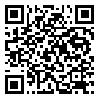Volume 1, Issue 1 (1-2014)
نظریه و عمل 2014, 1(1): 49-72 |
Back to browse issues page
Download citation:
BibTeX | RIS | EndNote | Medlars | ProCite | Reference Manager | RefWorks
Send citation to:



BibTeX | RIS | EndNote | Medlars | ProCite | Reference Manager | RefWorks
Send citation to:
Ghaderi M. (2014). Historical Analyzing of Reconceptualism: implication and intentions related to it in Curriculum Field. نظریه و عمل. 1(1), 49-72.
URL: http://cstp.khu.ac.ir/article-1-1850-en.html
URL: http://cstp.khu.ac.ir/article-1-1850-en.html
Abstract: (40816 Views)
This paper conducts a historical analysis of the meaning and aims Reconceptualism in viewpoint of Pinar et al, including methodology and critics related to it in curriculum field from 1960s to 2010s. For this means, 25 papers and 4 books of Pinar et al were studied by methods of document and textual analysis through an analytical-critical approach. Critiques of Wraga and Hlebowitsh as alternatives for Reconceptualism are accounted. The result of analysis showed that a) Reconceptualists aren’t a homogeneous group of curriculum experts share certain ideas b)Reconceptualism isn’t a movement, but rather a way or a process of understanding c) the process of understanding or the Reconceptualiztion project will never cease to continue. Thus, Reconceptualism cannot be defined easily and, d) Reconceptualism is a critical and inclusive movement that concentrates on out of school phenomena and critique of hidden and overt curriculum outcomes. Concerned issues and methodology of Reconceptualism that were extracted via open and selected coding include: pursuit of interdisciplinary studies, empowering critical role of theory, paradigm shift from curriculum planning to curriculum understanding, focusing on out of school variables, generalizing, emphasis on theory rather than practice, improving the field of curriculum studies in order to adapt to complicated dialogues, internationalization of curriculum studies, critic of ahistorical posture and using of autobiography and interpreting Currrere as a biographical mode. Finally, notable critiques of Reconceptualism and their responses are analyzed.
Type of Study: Research |
Published: 2014/01/15
Published: 2014/01/15
| Rights and permissions | |
 |
This work is licensed under a Creative Commons Attribution-NonCommercial 4.0 International License. |





